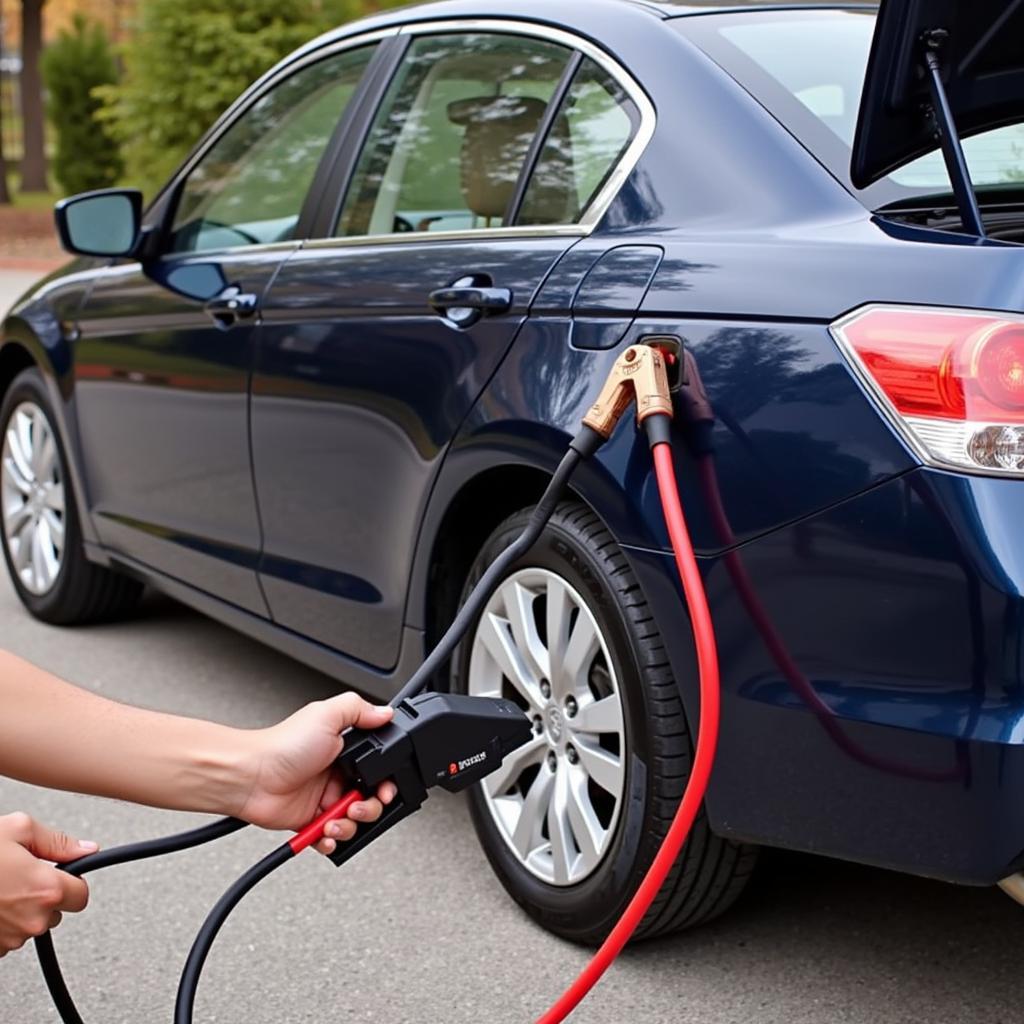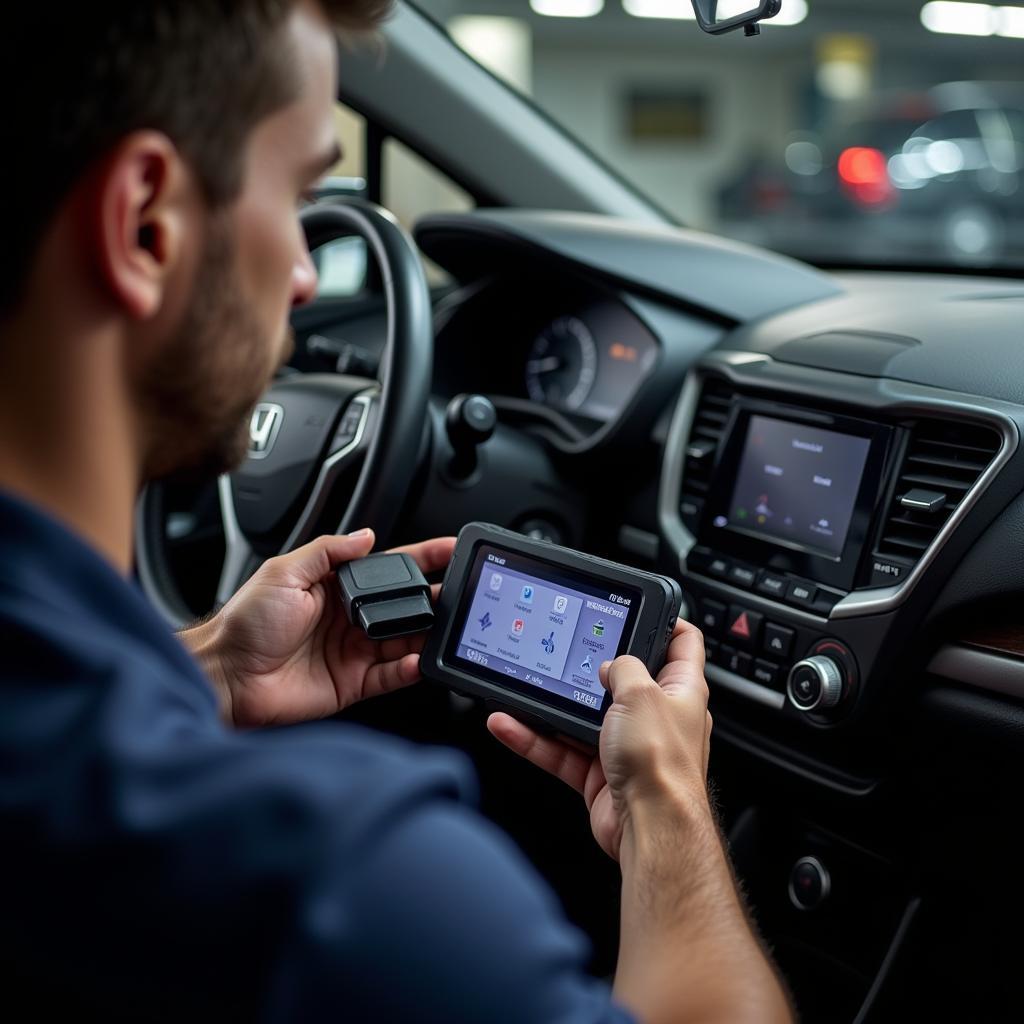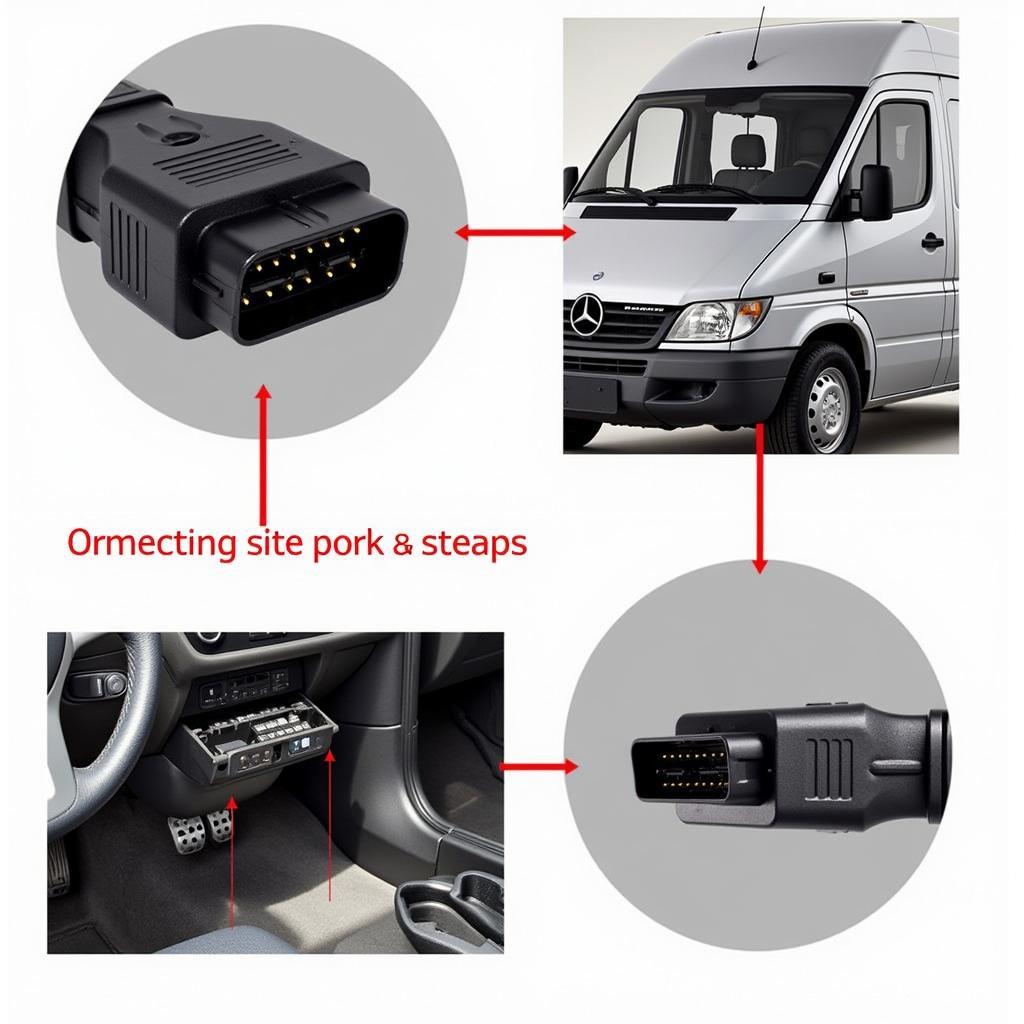You turn the key in your Honda Accord, expecting the familiar purr of the engine, but instead, you’re met with an unnerving silence. To make matters worse, a brake system warning light glares back at you from the dashboard. This situation can be frustrating and even a little scary, but before you call for a tow truck, let’s explore some common reasons why your Honda Accord won’t start and displays a brake system warning, and how you might be able to get back on the road.
Understanding the Brake System Warning and Starting Problems
While seemingly unconnected, a brake system warning alongside a no-start condition in your Honda Accord often points to a problem within the starting system itself. Modern vehicles are equipped with intricate safety features, and the braking system is deeply integrated with the starting mechanism.
Here’s how they’re connected:
-
Brake Switch Malfunction: The brake switch, also known as the brake pedal position sensor, plays a crucial role in starting your car. When you press the brake pedal, this switch sends a signal to the engine control unit (ECU) that it’s safe to start. If the brake switch malfunctions, the ECU might not receive this signal, preventing the starter from engaging.
-
Low Battery Voltage: Your Honda Accord’s battery powers vital components, including the starter motor and the brake system. When the battery voltage is low, there might not be enough power to engage the starter, and the brake system warning light might illuminate as a secondary symptom.
-
Faulty Starter: The starter motor is responsible for cranking the engine to life. If the starter or its components (solenoid, relay) fail, your Accord won’t start, regardless of the brake system status. However, a weak battery can also put stress on the starter, potentially leading to its premature failure and triggering warning lights.
Troubleshooting Your Honda Accord’s Starting Problem
Now that you have a basic understanding of the possible causes, let’s dive into some troubleshooting steps you can take:
-
Check the Battery: Start with the basics. Inspect the battery terminals for any signs of corrosion or loose connections. Clean the terminals and tighten the connections if needed. If you have a multimeter, check the battery voltage. A fully charged battery should read around 12.6 volts.
-
Test the Brake Switch: Locate the brake switch, usually situated above the brake pedal arm. With the ignition off, depress the brake pedal and have an assistant listen for a clicking sound coming from the switch. A distinct click usually indicates a functioning switch. However, this isn’t foolproof, and a faulty switch might still click.
-
Try Jump Starting: If you suspect a weak battery, attempt to jump-start your Honda Accord using jumper cables and a healthy battery from another vehicle. Remember to connect the cables in the correct order (red to positive, black to negative). If the car starts after a jump, it strongly suggests a battery issue.
 Jump Starting a Honda Accord
Jump Starting a Honda Accord
- Inspect the Starter: While visually inspecting the starter might be challenging without some mechanical expertise, you can listen for any unusual noises when attempting to start the car. A clicking sound from the starter area could indicate a failing starter solenoid or a lack of power reaching the starter motor.
Seeking Professional Help
If your Honda Accord still refuses to start even after trying these steps, it’s crucial to seek professional help.
“Ignoring warning lights or persistent starting problems can lead to more severe issues down the line,” says John Miller, a certified automotive electrician with over 20 years of experience. “Modern cars heavily rely on electronics and integrated systems. What might seem like a minor annoyance could be a symptom of a bigger problem.”
A qualified mechanic or an automotive electrician can accurately diagnose the problem using specialized diagnostic tools. They can pinpoint the root cause, whether it’s a faulty brake switch, a dying battery, a failing starter, or something more complex.
 Mechanic Diagnosing Honda Accord
Mechanic Diagnosing Honda Accord
Conclusion
Experiencing a no-start situation coupled with a brake system warning in your Honda Accord can be unsettling, but understanding the potential causes empowers you to take the right steps. By following the troubleshooting tips outlined in this article, you might be able to identify and address simple problems. However, don’t hesitate to seek professional assistance if the issue persists. Timely diagnosis and repair can save you time, money, and potential headaches down the road.

